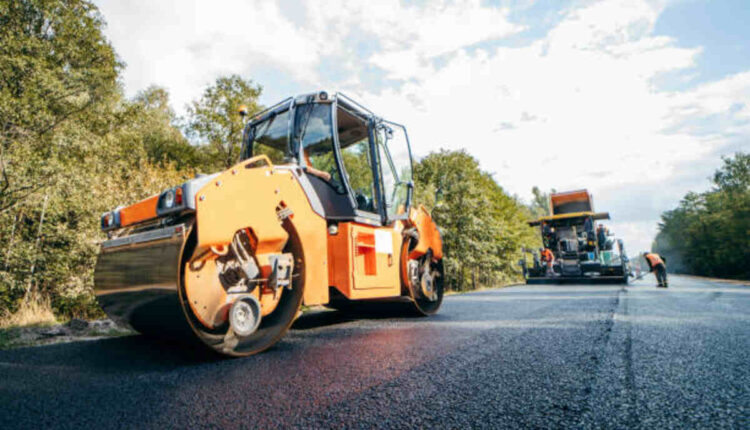Asphalt Paving Machines
No matter the task at hand – be it smoothing, leveling, or shaping asphalt surfaces – finding an appropriate paver will enable your crew to produce quality surfaces resistant to water damage and pothole formation. Modern pavers feature a hopper, conveyor system, distribution augers, and screed for efficient work. Best way to find the Asphalt companies Anaheim.
Dump trucks transport asphalt directly to paving sites, and contractors can adjust their size as per project needs.
Precise Material Flow
Precise material flow is critical to creating roads or pavements with the desired thickness and finish, while irregular material distribution may create bumpy or gapped finishes that damage vehicles or present safety hazards. Modern pavers use sophisticated electronic systems that monitor and regulate material feeding; this process includes adjusting conveyor speeds, augur distributions, and flow gates as needed to achieve optimal material distribution.
An integral component of any paving machine is the self-leveling screed unit, which determines the profile of the HMA that is laid. It works to flatten and partially compact asphalt pavement so as to make it more resistant to water damage and pothole formation. To further close asphalt layers fully, steel-wheeled rollers and pneumatic tire rollers may also be employed by this machine.
Milling machines are also essential in preparing the work area for paving, with their large rotating drums used to cut up existing asphalt. A sweeper is also crucial in clearing away debris from the work site – too much dust or dirt may prevent the asphalt mix from bonding with its base course and binding properly.
Material Transfer Vehicles (MTVs) provide pavers with HMA from end dump or live bottom trucks using material transfer vehicles (MTVs). These devices allow pavers to maximize productivity at their paving sites by minimizing truck waiting time at the site and helping prevent aggregate segregation due to temperature differences; additionally, they ensure the pavers’ hopper remains complete with consistent and quality asphalt mix.
Efficient Compaction
Compaction is of vital importance when paving asphalt. It increases the density of the material, making it more resistant to water penetration and traffic stress while simultaneously decreasing future maintenance costs and repairs. Compaction can be accomplished using various forms of compaction equipment; vibratory drum rollers, as well as plate and rammer compactors, are usually utilized during asphalt construction projects.
Once a new asphalt mixture has been delivered to its job site, it must be spread evenly across the paving area. There are various means available to evenly disperse it across this space: from end dump trucks that unload materials when raised onto their beds to live bottom trucks that use conveyor belts. Slat conveyors or auger conveyors may also be employed, with the latter offering advantages in handling thicker layers of material than end dump trucks or live bottom lorries can.
A paving machine is then used to compact the asphalt, ensuring there are no air pockets in the final product. This can be accomplished using either a roller or paver equipped with a dynamic compaction system – these allow continuous agitation and compression of asphalt mix for rapid compaction time. However, it’s important to remember that hot mixes will only compact effectively for this process.
Easy Maintenance
Asphalt paving requires both experience and special tools for optimal results, including pavers, rollers, rakes, and tampers. Professionals rely on such machines to produce smooth and reliable pavement surfaces.
Large highway-class pavers incorporate a tractor for driving and steering asphalt, as well as a feeder conveyor, distribution augers, and a screed to level and shape paving material. Some models allow operators to adjust paving width hydraulically from 8-16 feet.
Maintenance checks on pavers are crucial for their performance and longevity, such as inspecting their hopper for debris, tightening chain feeder conveyor links, and clearing distributor augers of debris. In addition, cleaning the machine daily should also be part of this regimen.
Workers must wear appropriate personal protective equipment, including safety vests, hard hats, steel-toe boots, and gloves. In addition to this, training on the machine’s operation and maintenance manuals as well as its Operations & Service Manual. Traffic control devices like cones, barricades, and signs should be utilized to inform pedestrians and drivers that work is being completed on roads; additionally, it’s advisable to keep a first aid kit handy in the event of an accident on site.
Safety
Construction can be one of the most hazardous industries, yet many risks can be reduced with standard safety precautions. For asphalt pavers specifically, this may include fire suppression systems to control ignition and flammability of hot mix asphalt, ventilation systems to minimize fume inhalation, protective guards designed to keep workers away from moving parts, as well as clearly visible warning signs displaying potential dangers or providing essential instructions.
The asphalt paver’s hopper holds hot mix asphalt (HMA). Its size and capacity are essential components in terms of efficient HMA paving, as an adequate supply of HMA is needed to ensure consistent mat density. Furthermore, an emptying process should take place without interrupting paving activities.
Once a hopper is filled, material flows along a conveyor system and onto a screed plate for distribution and compaction, resulting in an even and uniform pavement surface. The screed plate can then be adjusted to achieve different depths, widths, and grades of HMA material.
Paving jobs require both equipment operators and ground workers to maintain high levels of alertness. All employees should wear appropriate PPE while working with asphalt and other hazardous chemicals and report any unsafe conditions to supervisors immediately. Also, be wary of overhead obstructions and underground utilities so as to avoid collisions or damage to equipment.
Read also: What Happened To Mansion Global?



Comments are closed.